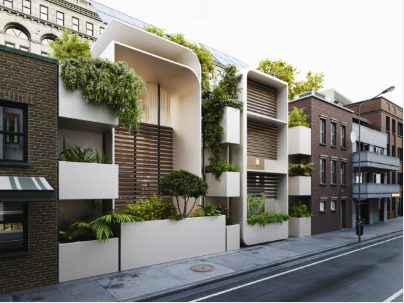Living in an apartment can be convenient and affordable for many individuals. Understand the costs associated with this lifestyle. From rent to utilities and other expenses, budgeting is essential to ensure you can afford your apartment and maintain a comfortable standard of living. In this article, we will provide useful tips on how to budget for the cost of living in an apartment. Whether you're a first-time renter or a seasoned apartment dweller, these tips will help you to manage your finances and make the most of your living situation.
Tips on Budgeting the Costs of Renting an Apartment

Apartment Rent
- Research and compare rent prices in your area before signing a lease.
- Consider a roommate to split the cost of the rent.
- Negotiate your rent with your landlord or property management company.
Cost Of Living
- Consider all expenses, including rent, utilities, groceries, transportation, and entertainment.
- Consider cost-saving measures like meal planning and finding free activities in your area.
Budgeting Tips
- Create a budget spreadsheet or use a budgeting app to track your expenses.
- Prioritize your expenses and cut back on unnecessary costs.
- Allow for some flexibility in your budget for unexpected expenses.
Monthly Expenses
- Create a list of all your monthly expenses and categorize them (e.g., rent, utilities, and groceries).
- Calculate the total cost of your monthly expenses and compare it to your income.
Utility Bills
- Use energy-efficient light bulbs and appliances to save on electricity bills.
- Set your thermostat to a comfortable temperature to save on heating and cooling costs.
- Consider cutting back on water usage to save on water bills.
Renters Insurance
- Research and compare different renters' insurance policies before selecting one.
- Ensure your policy covers any potential damages to your apartment or personal belongings.
Moving Costs
- Use a moving checklist to keep track of all expenses.
- Consider hiring a professional moving company or renting a truck to save on costs.
- Sell or donate any items you no longer need to reduce moving expenses.
Security Deposit
- Understand the terms and conditions of your security deposit before signing a lease.
- Take photos of any apartment damage before moving in to avoid losing your deposit.
- Keep your apartment clean and tidy to increase the chances of receiving your full deposit back.
Furniture Costs
- Shop for furniture at secondhand stores or online marketplaces to save on costs.
- Consider purchasing furniture gradually over time rather than all at once.
- Invest in multi-functional furniture to maximize space and storage.
Roommate Expenses
- Have an open and honest conversation with your roommate about splitting expenses.
- Create a joint budget and expenses spreadsheet to ensure transparency and accountability.
- Split costs like groceries and utility bills equally to avoid any conflicts.
Groceries and Meal Planning
- Plan meals ahead of time to avoid last-minute purchases and reduce food waste.
- Buy in bulk and take advantage of sales and coupons.
- Cook at home rather than eating out to save on costs.
Transportation Costs
- Use public transportation or walk/bike to work to save on gas and parking costs.
- Carpool with coworkers or friends to split the cost of gas.
- Consider purchasing a fuel-efficient car or hybrid.
Entertainment Budget
- Look for free or low-cost activities in your area, like hiking, visiting museums, or attending community events.
- Set a monthly budget for entertainment expenses like dining out or movies.
- Use discount codes or coupons when purchasing tickets for events.
Saving Money
- Set financial goals and create a savings plan.
- Consider opening a high-yield savings account to earn more interest on your savings.
- Look for opportunities to earn extra income, like freelancing or part-time work.
Financial Planning
- Create a long-term financial plan for your goals, like buying a house or starting a business.
- Consult with a financial advisor to help you make smart financial decisions.
- Continuously review and adjust your budget and financial plan as needed.
Setting a Realistic Budget for Your Apartment
Setting a realistic budget is a crucial step in renting an apartment. To create a budget:
- Start by calculating your monthly income and subtracting any fixed expenses, such as student loans or car payments.
- From there, estimate the cost of your variable expenses, such as rent, utilities, and groceries.
- Factor in any one-time expenses, such as moving costs or security deposits.
By creating a budget that accurately reflects your income and expenses, you can ensure that you can afford your apartment and maintain a comfortable standard of living.
Tracking Your Expenses and Creating a Spending Plan
Tracking your expenses and creating a spending plan can help you stay on top of your finances and avoid overspending. Start by keeping track of all your costs through a spreadsheet or a budgeting app. Categorize your expenses and identify areas where you may be overspending. Use this information to create a spending plan that prioritizes your needs and helps you save money.
Review and adjust your spending plan regularly to reflect any changes in your income or expenses. With a solid spending plan, you can achieve your financial goals and maintain a healthy financial future.
Saving Money on Utilities and Other Apartment Expenses

Saving money on utilities and other apartment expenses effectively reduces your overall cost of living. To save on utilities:
- Consider switching to energy-efficient light bulbs and appliances, and keep your thermostat at a reasonable temperature.
- Cut back on water usage by taking shorter showers and fixing any leaks.
- Regarding other expenses, consider purchasing secondhand furniture or shopping for groceries in bulk.
- Look for free or low-cost activities in your area, and always compare prices before purchasing.
By making small changes to your habits, you can save money and live more frugally in your apartment.
Maximizing Your Apartment Space and Storage
Maximizing your apartment space and storage is essential, especially if you live in a small apartment. Start by decluttering and donating any items you no longer need or use. Invest in space-saving furniture, such as a loft bed or a storage ottoman, to create more storage options. Hang shelves and hooks to store items vertically and free up floor space.
Use baskets, bins, and dividers to organize your belongings and maximize your closet space. Maximizing your apartment and storage can create a more functional and comfortable living space.
Finding Affordable Furniture and Decor
Finding affordable furniture and decor is crucial when setting up your apartment. Check out thrift stores, garage sales, and online marketplaces for secondhand items. You can also find great deals at discount stores or purchase furniture during sales events. Consider DIY projects to repurpose or refurbish furniture to match your style.
For decor, try using inexpensive accessories like throw pillows, rugs, and curtains to add color and personality to your space. You can decorate your apartment without breaking the bank by getting creative and exploring all your options.
Avoiding Common Budgeting Pitfalls for Apartment Renters
Avoiding common budgeting pitfalls is essential when managing your finances as an apartment renter. Avoid overspending on unnecessary items, and always stick to your budget. Don't forget to factor in unexpected expenses, such as repairs or medical bills, into your budget. Avoid accumulating debt by paying your bills on time and limiting your credit card use.
Lastly, save for emergencies and long-term goals like retirement or buying a home. You can achieve financial stability and peace of mind by avoiding common budgeting pitfalls.
Planning for Future Rent Increases and Expenses
Planning for future rent increases and expenses is crucial when setting up your apartment budget. Read your lease carefully and understand when your rent may increase. Plan for these increases and factor them into your budget. Additionally, consider saving for significant expenses like a security deposit or moving costs.
Be prepared for unexpected expenses by creating an emergency fund. By planning for future rent increases and costs, you can stay on top of your finances and avoid unexpected financial stress.
Tips for Building Your Savings While Renting an Apartment
Building your savings while renting an apartment is essential for achieving your long-term financial goals. Start by setting a savings goal and automating your savings contributions. Look for ways to reduce your expenses, like cutting back on dining out or canceling subscriptions you don't need. Consider finding ways to earn extra income, like freelancing or selling items you no longer need.
Lastly, prioritize your savings and avoid dipping into your emergency fund for non-emergency expenses. With these tips, you can build your savings while enjoying your rented apartment.
Balancing Your Apartment Costs with Other Financial Goals
Balancing your apartment costs with other financial goals can be a challenge. Still, it is essential to achieve overall financial health. Start by prioritizing your goals and creating a budget to save for both short-term and long-term goals. Consider reducing your apartment costs, such as negotiating rent or downsizing to a smaller apartment.
Look for ways to earn extra income or reduce expenses to free up more money for your financial goals. By balancing your apartment costs with other financial goals, you can achieve financial stability and work towards your future financial aspirations.
Get Budget-Friendly Apartments for Rent with Saakin Qatar
If you are looking for a budget-friendly apartment to rent in Qatar, SaakinQatar is the place to go. With a wide range of flats, the website offers affordable options that fit any budget. You can easily search for apartments by location, size, and price range on their website, making it easy to find the perfect apartment.
It also provides detailed information about each apartment, including photos and amenities, to help you make an informed decision. Their user-friendly interface and excellent customer service make renting easy and stress-free. So, if you're looking for a budget-friendly apartment, check our listings today!
FAQs
What is the 50-30-20 rule?
The 50-30-20 rule is a budgeting guideline that suggests allocating 50% of income to needs, 30% to wants, and 20% to savings.
What is the best way to budget rent?
The best way to budget rent is to set a realistic amount based on your income, track your expenses, and prioritize saving for unexpected or future rent increases.
How do I plan my first apartment?
To plan your first apartment, determine your budget, choose a location, decide on the type of apartment you want, and make a list of necessary furnishings and appliances.
How do you budget for an apartment?
To budget for an apartment, determine your monthly income, track your expenses, and set a realistic budget for rent and other necessary costs while prioritizing savings and emergency funds.
Read More: Brand New Apartments for Rent in Doha
Comments
No comments yet.





_1772190035.jpg )


















